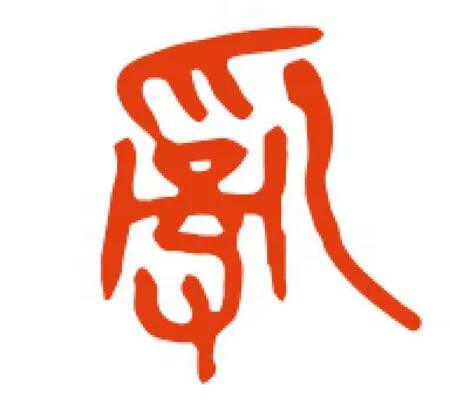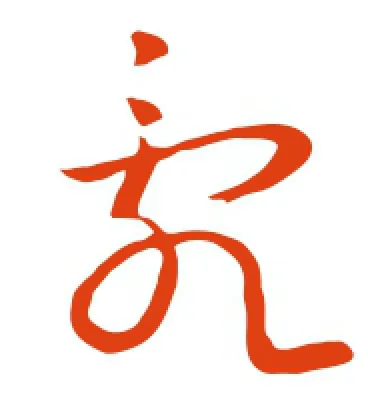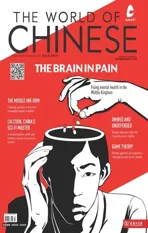乱
2015-01-17
乱
Chaos rises from order
生活中不能避免之混乱
lt could be any of the harrowing tourist sites in and out of the country on national holidays. It could be the messy, crowded, rage-filled roads of Beijing. It could be the world inside your head. Imagine a handful of tangled threads and you get the character 乱(luàn) or “chaos, disorder”.
However, the character did not always refer to a state of confusion and turmoil. Its earliest form was discovered among scripts inscribed on bronze vessels and actually meant quite the opposite. On top and bottom of the character were two pictograms representing two hands with a bundle of silk threads hanging on a rack in the middle. Together, it was supposed to be the gesture “to sort out silk threads”.

BRONZE SCRlPT

SEAl SCRlPT

ClERlCAl SCRlPT

CURSlVE SCRlPT

REGUlAR SCRlPT

Later, on the right side of the character, a curve radical was added to represent the end result of this activity: neatly separated silk threads. Therefore the original meaning of 乱 was actually to impose order. But entropy took hold as the meaning “disorder”eventually gained the upper hand in the Chinese language. The traditional form of the character, 亂, gave way to its simplified version, 乱. Throughout Chinese history, dynasties rise and fall. So, 乱 was commonly associated with the instability and disorder of states. Confucius warned: “Do not enter a dangerous state and do not reside in a chaotic one.” (危邦不入,乱邦不居。Wēi bāng bú rù, luàn bāng bù jū.) This doesn’t just refer to an obvious choice for personal safety, it’s a message to the politically-minded to lay low until the situation cools off. Interestingly, an idiom states, 乱世出英雄 (luànshì chū yīngxióng, heroes rise in turbulent times). So, you can take the scholar’s advice and mind your business or try your luck at being a superhero. Another quote from Lüshi Chunqiu (《吕氏春秋》, literally, Mr. Lü’s Annals), a collection of political essays compiled around the third century, states: “To administrate a state without law will lead to chaos; but abiding by the law without reform will cause rebellion. With chaos and rebellion, a state can’t possibly be prosperous.” (治国无法则乱,守法而弗变则悖,悖乱不可以持国。Zhì guó wú fǎ zé luàn, shǒu fǎ ér fú biàn zé bèi, bèi luàn bù kěyǐ chí guó.)
Today, we use 乱 to describe anything from a messy house to a restless mind. For instance, 家里乱糟糟的,心里也乱糟糟的。(Jiālǐ luànzāozāo de, xīnlǐ yě luànzāozāo de. My home is a mess and my mind is also a mess.) A number of words formed by the character all have similar meanings, such as紊乱(wěnluàn, chaos, disorder), 凌乱 (língluàn, in disorder, in confusion), and乱套 (luàntào, to mess things up). A phrase often used to describe a state of disorder is 乱七八糟(luànqībāzāo, literally, the messy seven and eight). For example, you have: 现在公司里乱七八糟,大家心里也都乱七八糟。(Xiànzài gōngsī lǐ luànqībāzāo, dàjiā xīnli yě luànqībāzāo. The company is in a mess, everyone’s mind is a mess.) You might be wondering what seven and eight have to do with disorder.
Well, they actually each refer to a chaotic period in Chinese history. First, there are the seven states that rose in rebellion against the emperor in the West Han Dynasty (206 BCE –25 BC) and second you have the eight princes of the Jin Dynasty (265 – 420) in a 16-year power struggle.
An unsettled mind is something we all experience. We just can’t help letting our mind run wild(胡思乱想 hú sī luàn xiǎng)from time to time, or perhaps your brain feels like a tangled web of yarn (心乱如麻 xīnluàn rú má)—in restless distress and disquiet(心烦意乱xīnfán yìluàn)about even the smallest of details.
When you see 乱, you know something is out of place. The character can also mean“random or arbitrary”. When people throw out their opinions without thinking, you can call it 乱说 (luànshuō, random speech or talking nonsense). When someone offers you offhand advice, it’s called 乱出主意 (luàn chū zhǔyì). One interesting phrase to remember is 乱弹琴(luàntánqín), literally, “randomly playing the lute”, meaning “to act or talk like a fool”. For instance, you have 最忙的时候,你要去度假, 真是乱弹琴。(Zuì máng de shíhou, nǐ yào qù dùjià, zhēnshi luàntánqín. At this busy moment, you want to take a vacation; it’s fool’s talk.)
There are also a few cases where 乱 has other meanings not far from its core purpose. For instance, in the phrase 以假乱真 (yǐ jiǎ luàn zhēn, fake, pass off as genuine), 乱 is a verb and means “to confuse”. It also means “to upset or spoil” in the idiom, 小不忍则乱大谋 (xiǎo bù rěn zé luàn dà móu), which means “temper or impatience can spoil a big plan”. In terms of relationships, 乱 can also refer to promiscuity, as in 淫乱 (yínluàn, licentious).
From turbulent states to the sensitive human mind, the character covers every scenario in which things go wrong. Here’s to hoping you stay out of 乱子 (luànzi), or trouble, in the near future, but, let’s face it, chaos is a law of nature.
- HUANG WElJlA 〔黄伟嘉〕 AND llU JUE 〔刘珏〕
